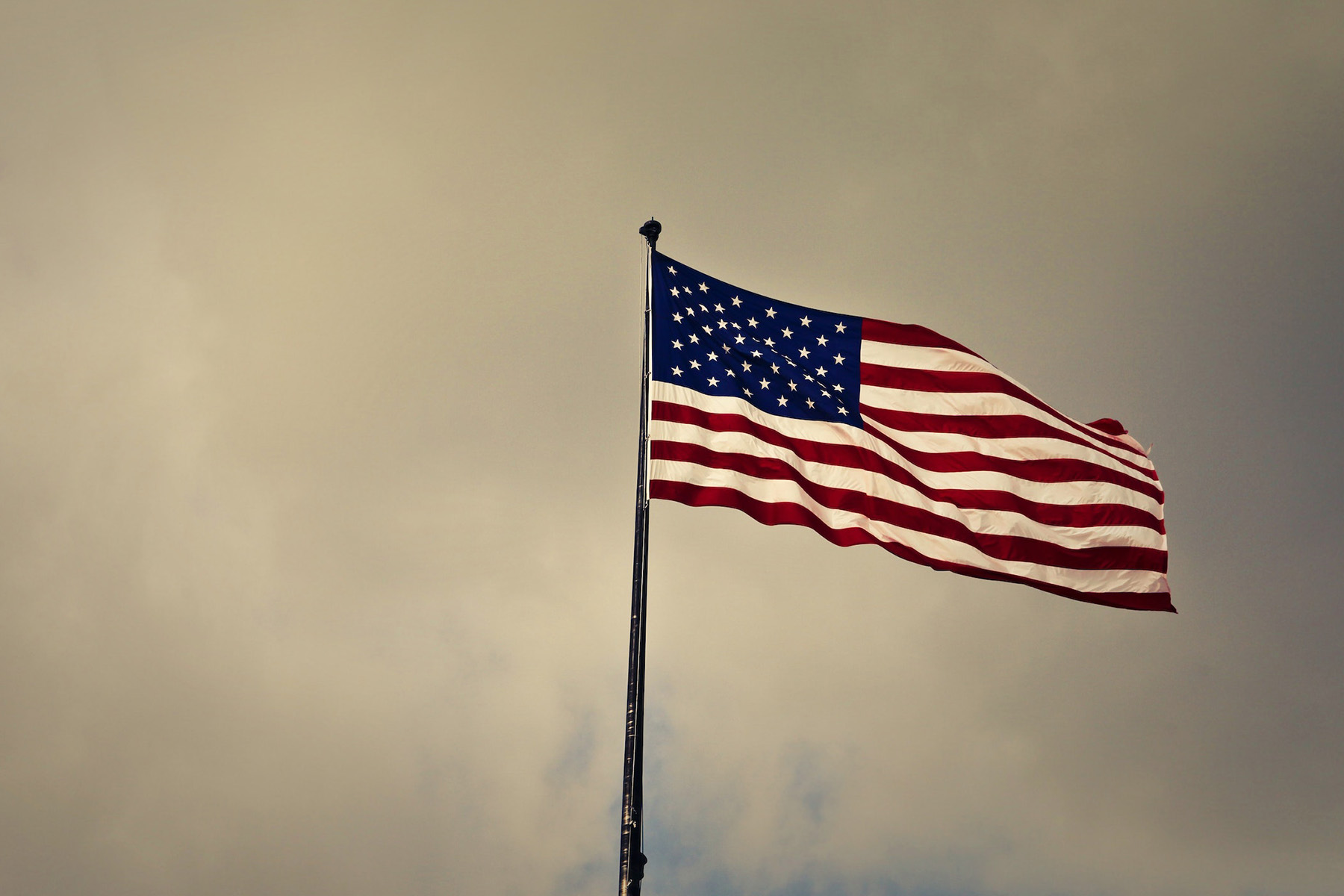The United States has always stood out as a highly individualistic, highly capitalistic society—you do what you want, I do what I want. We view the world in relation to ourselves, and we don’t always think about the structure and systems that made our way of living possible. The US is the country of I, not the country of we.
I am American, so I know this to be true. But I am also English, and while I was raised in the US on the gospel of highly individualistic capitalism, I now live in England, which, though still very much driven by economic growth and personal wealth, acknowledges that a system in which everyone looks out for each other functions more smoothly and fairly than one in which it is every human for themselves. The United States is the richest country in the world, yet we feel no obligation to share our good fortune. I say fortune, not wealth, for it is not just hard work—but also luck and circumstance—that allows for the excessive riches of my country.
When you have lived somewhere your whole life, it is all you know to be true. Even with our annual visits to my family in England, I was still a visitor, and my home was that big, brash nation across a cold and windy ocean. But I am one of those lucky Americans: though I was born outside the country, I inherited US citizenship through my mother, and at the age of 5 was brought to a leafy suburb of New York.
My dad lived in the country for years without citizenship, but he was on a green card through his high-paying corporate job, and never faced xenophobia or discrimination. It was also through his job that my entire family received top-quality healthcare. We never struggled the way millions of Americans do to make ends meet and keep their families healthy within a system in which it is all too easy to get left behind.
And then it was my turn, and after attending one of those infamously expensive private universities, I too went on to take a job in well-paid corporate America, allowing me to move seamlessly from one private healthcare plan to the next. For many people around the world—especially young, healthy people—private healthcare probably makes no sense. Why would you pay all of this extra money to see a private doctor, when the public healthcare system is perfectly functional? The thing is, there is no public health system in the US. Somewhere along the way, we decided that healthcare is a privilege, not a right.
At dinner some time in the thick of lockdown, I was talking to my sister’s boyfriend about his Aunt, who has been receiving payment from the government for 30 years because she is unable to work due to her bad back. Without thinking, the American in me reared her ugly head: but it’s not the government’s fault she has a bad back, why should they pay her to do nothing? Henry looked me and said, but it’s not her fault either.
Of course it’s not, and it felt wrong as soon as I said it. But America is a society of the Self, where we’re always looking out for number 1, and no one else. It makes us uncomfortable to think about supporting other people with our own money, like we’re somehow being taken advantage of. In the United States, we have this notion of, not on my tax dollar! We hate the idea of our hard-earned dollars helping out someone in need. This ‘someone’ is usually portrayed as an unfit, unhealthy degenerate mooching off the system, always taking and never contributing. We don’t imagine our equals—or, god forbid, ourselves—ever falling ill, no no. If you are a good person who works hard, you’ll always keep moving up, right?
It’s the American Dream!
Somewhere woven into this dream is the belief that we could, one day, become millionaires, or at the very least get to a social and economic standing much higher than the one we currently hold. And if we contribute to a collective safety net, it would be a waste of our money, because we won’t even benefit from it! We’ll be too god damn rich!
In a survey conducted in 2017, 29% of the adult sample size said they believed that they will one day be millionaires. In a 2018 study that only surveyed millennials, 53% said they have plans to be millionaires. The real figure of adults in the United States with $1 million or more is 5.8%.
Now, I don’t think there is anything wrong with being ambitious and aiming high. In fact, these are admirable qualities in most of us and they keep our economy churning. But the reality is that most people, by definition, will not end up in the 1%. America survives on the dream of making it big, but this notion creates a society of brutal competition and low empathy, where only a few can win.
And most people don’t end up winning. When things are going well, it is difficult to imagine that you could be the one in need of that extra help, but for the majority of people, that is the case. The dark reality is, with 12% of Americans falling below the poverty line, you are more likely to be in poverty than you are to be really rich.
And perhaps nothing woke Americans up to the instability of our economic and social system quite like the COVID-19 pandemic. Every country has suffered losses over the past few months and England definitely does not stand out as an example of a well-managed pandemic, but citizens have felt more or less comfortable, both from a health and economic perspective, depending on the relationship between the government and its people, and also between the people themselves.
When the pandemic came to Europe, I was working at a pub, and we all knew that our jobs were at risk. But the government almost immediately (at least it seemed to me) laid out a furlough scheme, wherein every employee who could no longer work would receive 80% of their monthly salary, up to £2,500 each month. We didn’t have to do a thing—the companies applied to the government on behalf of all of their employees, and we received our slightly decreased monthly salaries, just like we had been doing before the crisis.
When I read about the people that worked in restaurants in New York, who were let go en masse, all of a sudden without a job and with no clear plan laid out for them, I couldn’t believe the random luck that put me in this country during this time, rather than the place I had left not even two years before.
I think it also goes without saying that living in a country with a national health system during a global health crisis is a benefit that so many Europeans take for granted.
While in the US, millions go without health insurance and many more that are covered by their jobs still cannot afford the high premiums and co-pays of the private system, Brits are awarded a place in the National Health Service as soon as we come into the world. Many Britons will tell you that the system is not perfect, and most NHS doctors will tell you they are not being paid enough (while being a doctor in the US is the highest-paying career path in the country), but knowing that you can be seen by a doctor—for free—is something I am so grateful for.
It is true that, on average, Americans have a higher take-home salary than Brits, but when they have to pay drastically higher fees for healthcare, prescription drugs and most levels of education, it becomes quite difficult to compare these metrics. Additionally, the British system only starts taxing more than the American one after a citizen earns £12,000 annually, or about $15,000 USD, depending on the exchange rate. And under the US tax system, those with a health insurance plan receive tax breaks, which essentially punishes poorer Americans without a stable job to provide them benefits. Americans like to hold onto more of their money because they like to be the ones to decide how to use it, but it seems all this really does is create a less equal society where the rich can buy many services that the government should provide, and the poor are left with very little support.
So, what do we make of all this? In the UK, we’ve got the national health service, free museums and more affordable education. In the US we’ve got incredibly strong protection of private property, low business regulations, and more billionaires than any other country in the world. Both boast high levels of inequality. And though the UK has opened up the conversation for using a more well-rounded approach to analyzing national success (like the well-being metric currently in use in Scotland, Iceland and New Zealand), both countries still rely on the one-dimensional Gross Domestic Product statistic to signify prosperity. In that arena, the US is ahead of the UK, but have they won?
It may be overly optimistic to think the capitalistic tide is slowly receding, but there is unquestionably an incoming current demanding our leaders to focus on more than economic growth alone. Soon health—mental, physical and environmental—and happiness may be larger factors in assessing a nation’s true wealth. From my newfound British perspective, I imagine that a country with slightly more awareness of the group—of collective wellbeing—may fare better in this quest, but I could be biased. I don’t think either of my countries will be leaders in this move towards a more holistic measure of national progress, but I hope they can both acknowledge the tide, and at least hop on board the boat.




